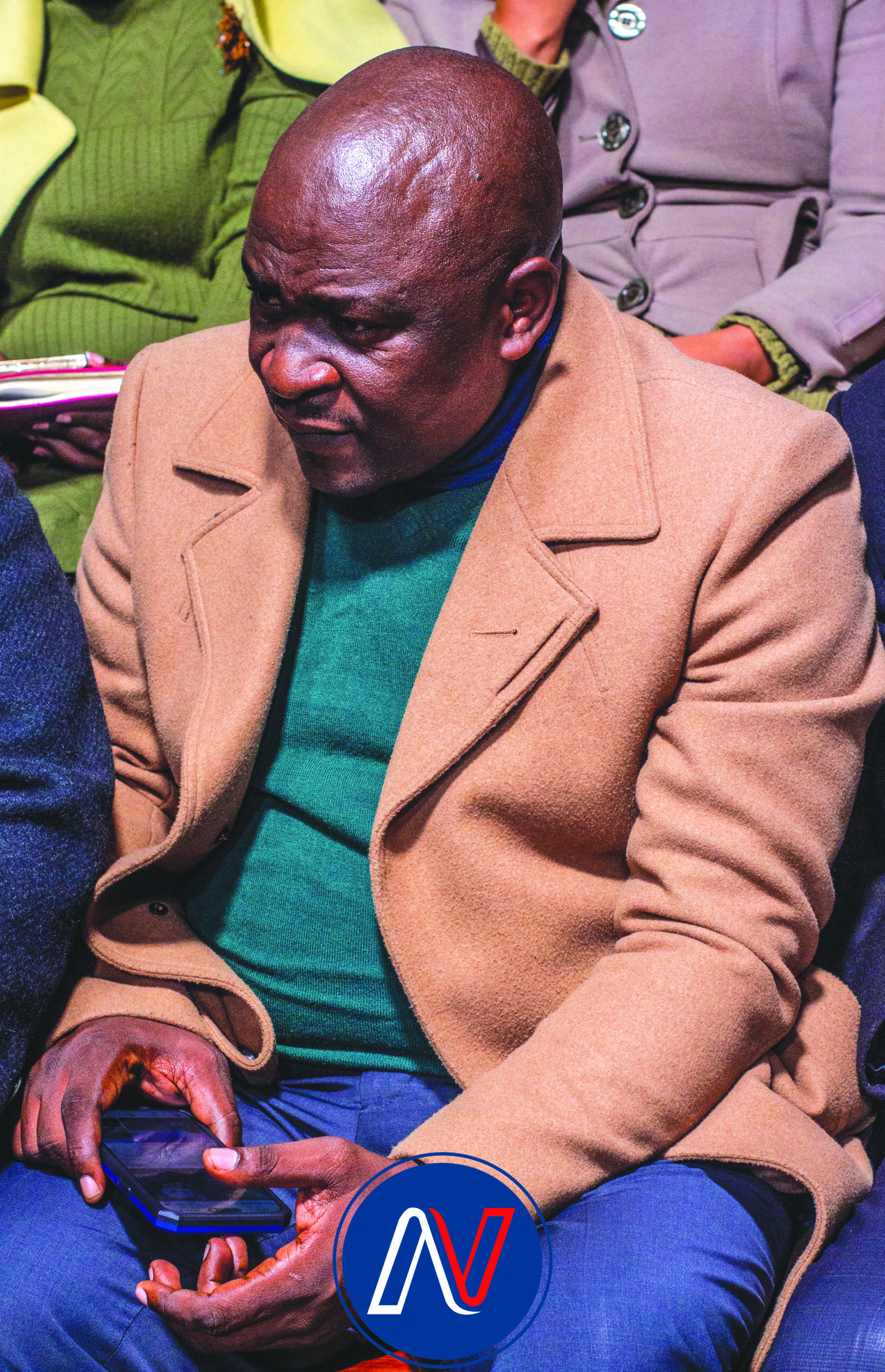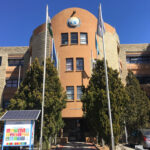A leaked diplomatic cable has revealed that the abrupt termination of a major United States-funded health program in Lesotho is endangering the lives of more than 125,000 people, amid a shrinking health workforce and disrupted care services.
Dated May 23 this year, the confidential cable, authored by a U.S. diplomat at the embassy in Maseru and addressed to the U.S. Department of State, warned of devastating consequences following the cancellation of the Bophelo Bo Botle award, a $7 million grant under the U.S. President’s Emergency Plan for AIDS Relief (PEPFAR).
The program, run by the Elizabeth Glaser Pediatric AIDS Foundation (EGPAF), was terminated on February 26 and has not been reinstated.
“The abrupt termination of this award has severely disrupted care delivery and threatens to reverse hard-won gains in controlling Lesotho’s HIV epidemic that leaves Lesotho vulnerable at this critical juncture,” the cable stated.
The diplomat’s memo paints a grim picture. “With a shrinking health workforce, the quality and continuity of care have markedly declined, placing approximately 125,000 adults and children at risk of illness and death.”

“Over half of those currently receiving HIV/AIDS treatment in Lesotho will lose access,” the cable warned. “This will lead to treatment interruptions, increased new HIV infections, and higher mortality rates.”
The program had been delivering services that fell under the “Lifesaving Waiver” announced by the U.S. State Department, which was meant to shield critical health and food assistance programs from the effects of a broad foreign-aid freeze.
That freeze was triggered by a controversial executive order signed by President Donald Trump earlier this year, ordering a comprehensive review of U.S. foreign aid programs.
While some programs received waivers to continue operations, others, like Bophelo Bo Botle, were discontinued after what the cable described as a “cursory review process,” despite clearly meeting the life-saving criteria.
Particularly alarming is the impact on HIV-positive mothers and newborns. One of the cornerstone components of the terminated program was the prevention of mother-to-child transmission, a vital intervention in a country with one of the highest HIV prevalence rates in the world.
The fallout from the funding cut is further exacerbated by a shrinking and overstretched health workforce. The cable notes that the weakened system cannot cope with the surge in demand for care, further compromising the continuity and quality of services.
When contacted for comment, the U.S. Embassy in Maseru declined to confirm or deny the contents of the leaked cable.
“As a matter of policy, we do not comment on alleged or purportedly leaked diplomatic communications. The U.S. government remains strongly committed to supporting the health and well-being of the Basotho people,” the embassy stated.
Speaking to Mother Jones, Catherine Connor, Vice President of Public Policy and Advocacy at EGPAF, confirmed the severity of the fallout.
“While we are still hoping to restart the program, the outlook is not positive,” she said. “I think that we’re just now entering the phase where we are able to look at the whole picture and say, well, ‘we removed this piece of the puzzle, we lost more than we were betting on.’”
“My impression is that when these decisions were made, they were based on what’s happening on paper, not in practice,” Connor continued. “Now that these decisions are being put into practice, the implications are coming to light.”
She added that EGPAF has lost vital frontline presence: “We lost our eyes and ears and hands on the ground that would have really helped us identify patients that may be falling off care, identify places in the health system where we could try to course correct.”
Connor also noted that the Lesotho government lacks the financial and human resources to absorb the fallout or replace the lost services.
On Monday, the government of Lesotho pledged to rehire workers laid off due to U.S. executive orders that resulted in major health funding cuts.
Health Minister Selibe Mochoboroane made the announcement, revealing that 1,347 health workers had initially lost their jobs. Of those, 654 have since been reinstated, but 693 remain unemployed.
“I already have their list in the form of a savingram from the Ministry of Health to the Ministry of Finance and Development Planning,” Mochoboroane said. “The two ministries will ensure the remaining people get back to work.”
However, this assurance has been met with concern from civil society groups working with key affected populations (KAPs), who say their staff have been excluded from the rehiring process.
Homohang Letsie, Project Coordinator of the Key Affected Populations Alliance of Lesotho (KAPAL), welcomed the government’s efforts but said organisations serving KAPs have not seen any of their staff re-employed.
“Those working with key populations have not returned to work,” Letsie said, warning that the gap threatens progress in the fight against HIV/AIDS. “These groups have historically been identified as high-risk for new infections. If they are not serviced well, in spaces where they feel safe and respected, we risk undoing hard-won gains.”
She raised alarm over the closure of walk-in centers that had catered specifically to key populations, offering discreet and accessible services, including at night.
“Now that those centers are closed, many clients have likely defaulted on treatment,” she lamented. “We cannot confirm this because we’re not working anymore, but we have no doubt that’s the reality.”
Patient files from the closed facilities were transferred to Maseru District Hospital, and clients were advised to seek care there or request a transfer. But according to Letsie, this solution ignores the realities of stigma and discrimination.
“It does not solve the problem,” she said. “You’re asking people to return to facilities where they were never comfortable, or to services that don’t meet their needs.”
Lesotho has long grappled with one of the most severe HIV/AIDS epidemics in the world. With an adult prevalence rate of approximately 21.1 percent, the country consistently ranks among the top three globally for HIV infection rates.
An estimated 330,000 Basotho are currently living with HIV, including about 13,000 children. This staggering burden places enormous pressure on the country’s already fragile health system, which has been further strained by funding uncertainties and workforce reductions.
Over the past two decades, Lesotho has made commendable progress in its fight against HIV/AIDS. Major investments from global health initiatives such as PEPFAR and the Global Fund have helped scale up access to testing, treatment, and prevention services.
These efforts have translated into tangible gains: more than 90 percent of people living with HIV now know their status, and a similar proportion are on life-saving antiretroviral therapy (ART). Additionally, significant strides have been made in reducing mother-to-child transmission, once a persistent challenge in the country.
However, these gains remain precarious. The health system in Lesotho is marked by chronic under-resourcing, poor infrastructure, and a shortage of trained personnel, particularly in rural areas.
Summary
- A leaked diplomatic cable has revealed that the abrupt termination of a major United States-funded health program in Lesotho is endangering the lives of more than 125,000 people, amid a shrinking health workforce and disrupted care services.
- One of the cornerstone components of the terminated program was the prevention of mother-to-child transmission, a vital intervention in a country with one of the highest HIV prevalence rates in the world.
- “I think that we’re just now entering the phase where we are able to look at the whole picture and say, well, ‘we removed this piece of the puzzle, we lost more than we were betting on.

Ntsoaki Motaung is an award-winning health journalist from Lesotho, specializing in community health stories with a focus on sexual and reproductive health and rights, as well as HIV. She has contributed to platforms like “Be in the KNOW,” highlighting issues such as the exclusion of people with disabilities from HIV prevention efforts in Lesotho.
In addition to her journalism, Ntsoaki serves as the Country Coordinator for the Regional Media Action Plan Support Network (REMAPSEN). She is also a 2023 CPHIA Journalism Fellow.









